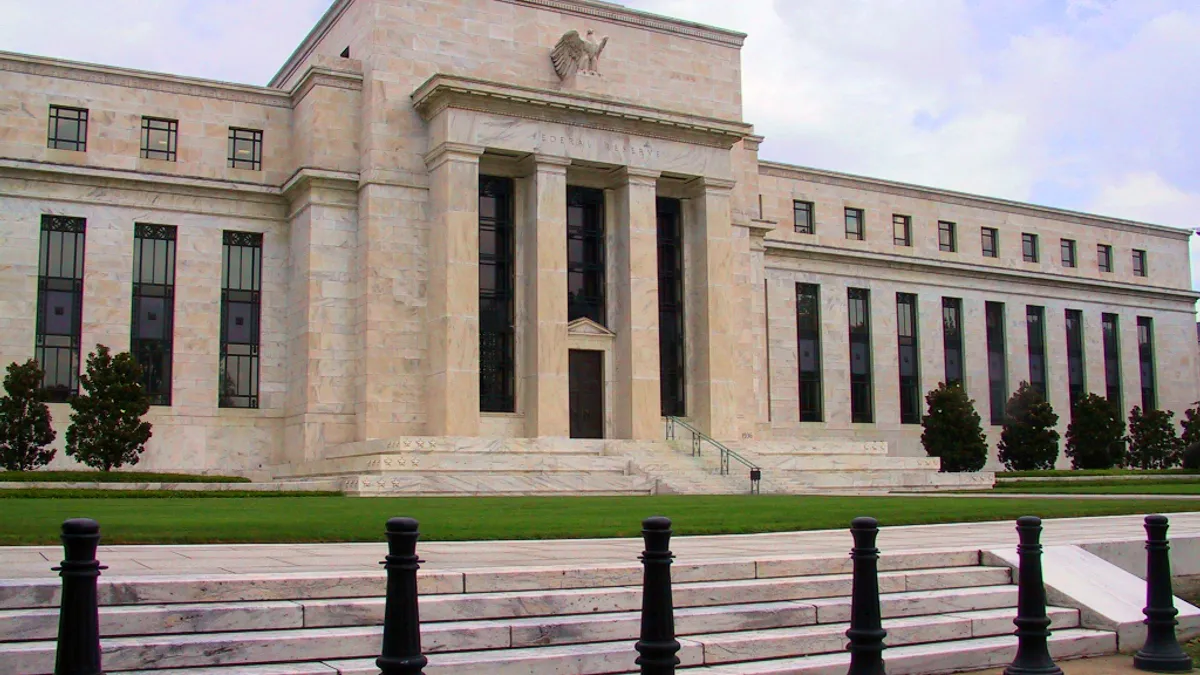The Federal Reserve, Federal Deposit Insurance Corp. and Office of the Comptroller of the Currency on Friday extended until Jan. 16 the comment period connected to the multiagency effort, announced in July, to revamp capital requirements for banks with $100 billion in assets or more.
The agencies are also launching an initiative to collect more data from banks affected by the proposal, the Fed, FDIC and OCC said Friday. The new requirements are set to increase, by an average of 19%, the amount of capital U.S.-based global systemically important banks would have to hold. Banks with between $250 billion and $1 trillion in assets, by comparison, face a roughly 10% uptick, while banks with $100 billion to $250 billion would see a 5% jump in capital holdings.
Regulators’ reliance on little data in the capital-requirements proposal — or information that isn’t publicly available — has drawn criticism from banking trade groups and lawmakers alike.
Rep. Patrick McHenry, R-NC, for one, called out the 1,087-page proposal’s “paltry” impact analysis in a September letter to regulators. The House Financial Services Committee chair said the proposal “contain[s] unsubstantiated assertions and citations to studies that often are too outdated to be relevant.”
The regulators said in their proposal they would “collect additional data to refine [their] estimates of the rule’s effects” during the comment period, a move meant to “inform finalization of the rule.”
That prospect drew flak from the Bank Policy Institute and five other trade groups, who last month said “collecting such data during, rather than before, the comment period is … legally improper.”
“The purpose of the comment period is for the public to review the agency’s proposal, including any supporting evidence, not for the agency to finish doing work that should have been completed before issuing the proposal,” the groups wrote. “The agencies cannot fill in the blanks in the final rule.”
The groups said the regulators’ “reliance on non-public information violates clear requirements under the Administrative Procedure Act.”
Some of the data and analysis may raise confidentiality concerns, the trade groups noted. But “nothing prevents the agencies from releasing such data and analyses in a manner that is anonymized or aggregated to the extent necessary to protect bank or other party confidentiality,” the groups wrote.
McHenry described the rule as “economically significant” but said it “does not contain a meaningful regulatory impact analysis, economic impact assessment or cost-benefit analysis.”
Yet Republicans aren’t the only lawmakers with gripes toward the proposal — particularly regarding details and transparency.
“Details are important since they will undoubtedly have effects on the lending activity, market behavior and internal operations both of the large U.S. banks which will be directly impacted and the other players in the economy who will have to adapt to a new equilibrium,” Rep. Bill Foster, D-IL, said last month, according to American Banker. “Because of that complexity, it’s important that the public have maximum visibility into both the rules themselves and to the quantitative consideration that led to the final choices made.”
The previous comment deadline was Nov. 30.














